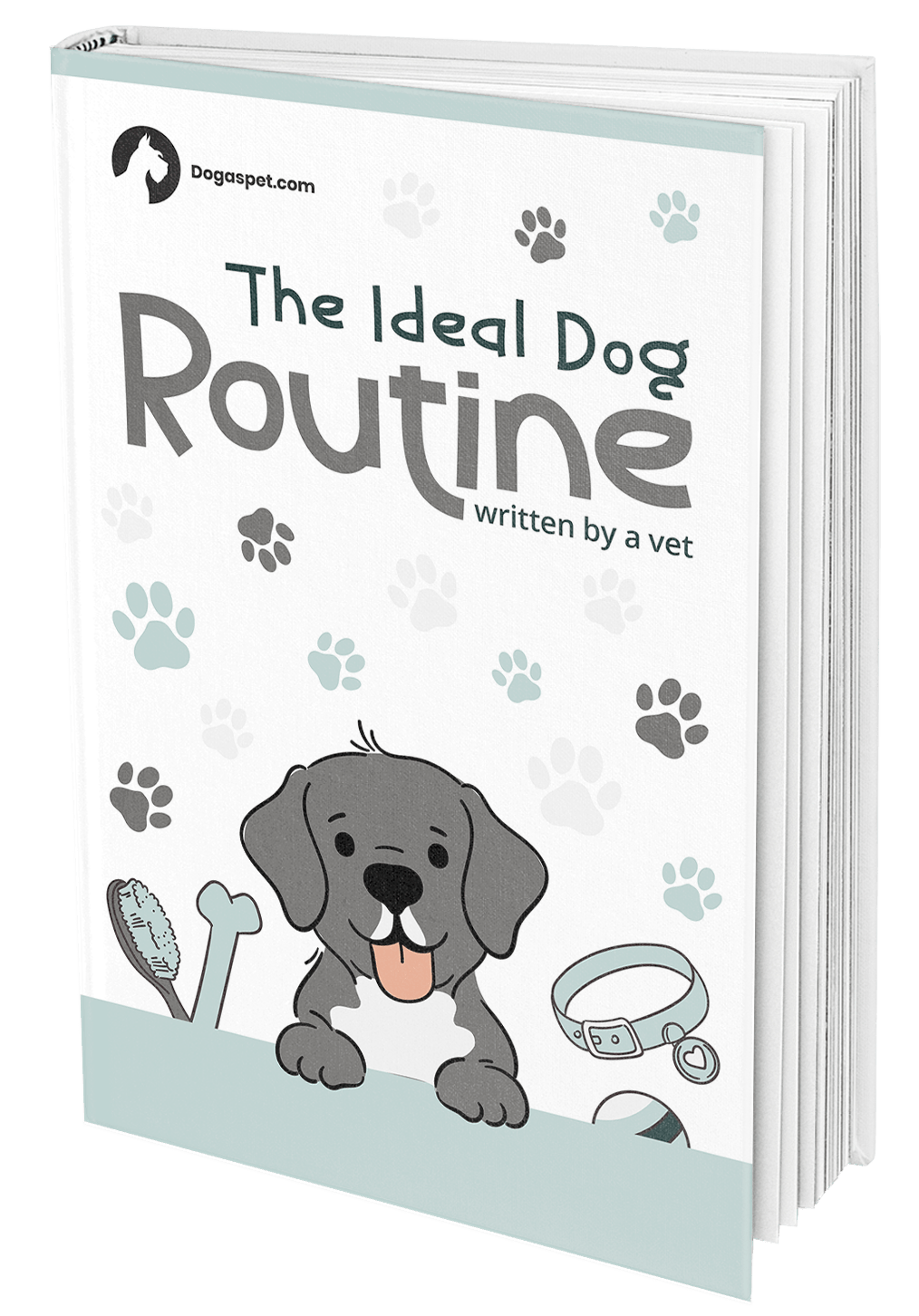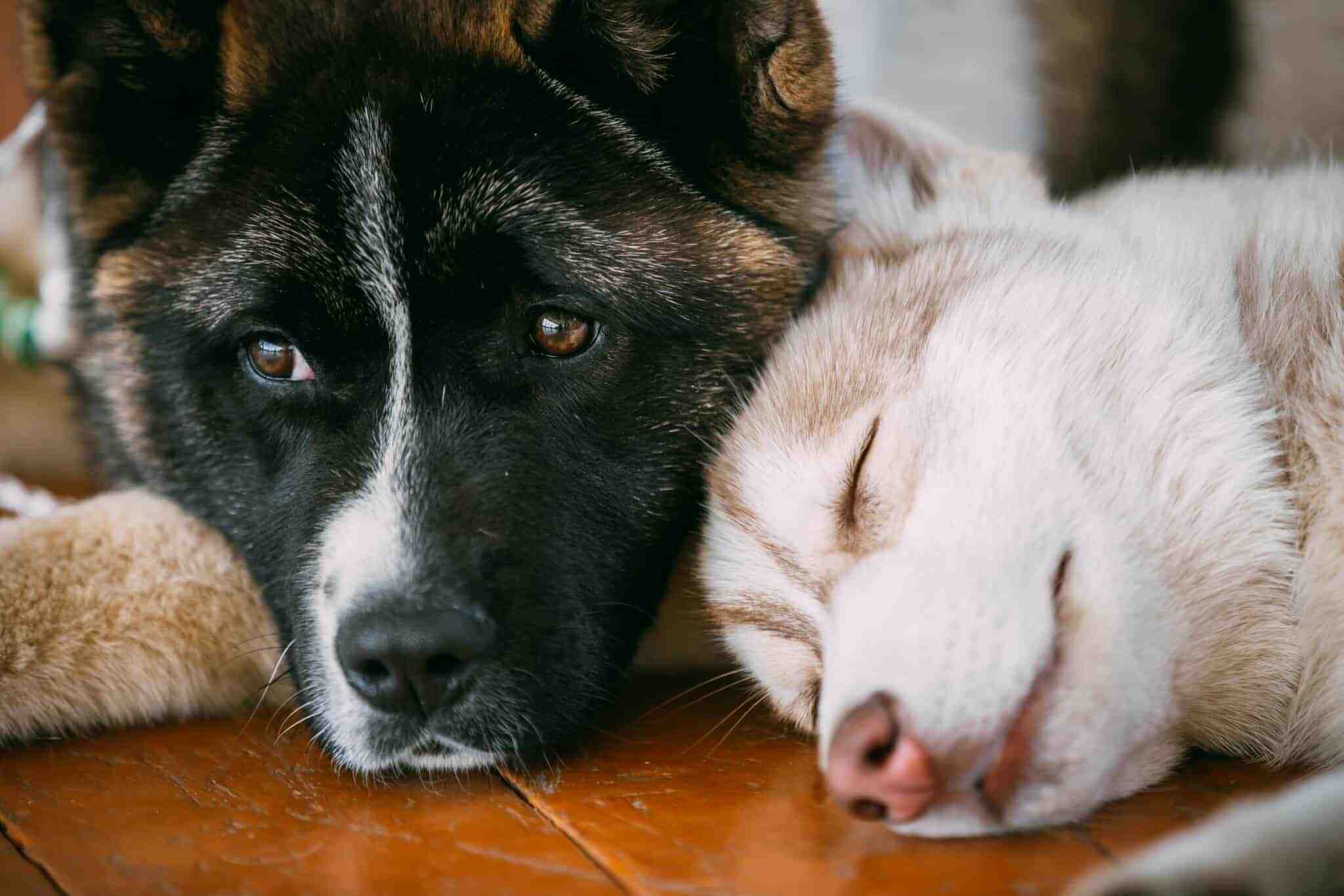
When it comes to akita vs husky, there are a few key differences to take into consideration. This article will go in-depth on the akita vs husky debate, discussing the key akita vs husky differences in order to help you make a decision on which breed is right for you.
First will take a look at each breed individually. Then we will give a detailed explanation of the differences between the akita vs husky.
Table of contents
The akita
The akita is a large breed of dog originating from the mountainous regions of northern Japan. They are a popular breed known as a powerful, independent, and loyal companion that has been prized by Japanese families for centuries.
They are a versatile breed that excels in several activities including tracking, agility, obedience, and guarding. They are also renowned for their fighting ability and have been used in bear baiting and dog fighting throughout history.
Today, the akita is a popular family pet and loyal companion that can be found in homes all over the world.
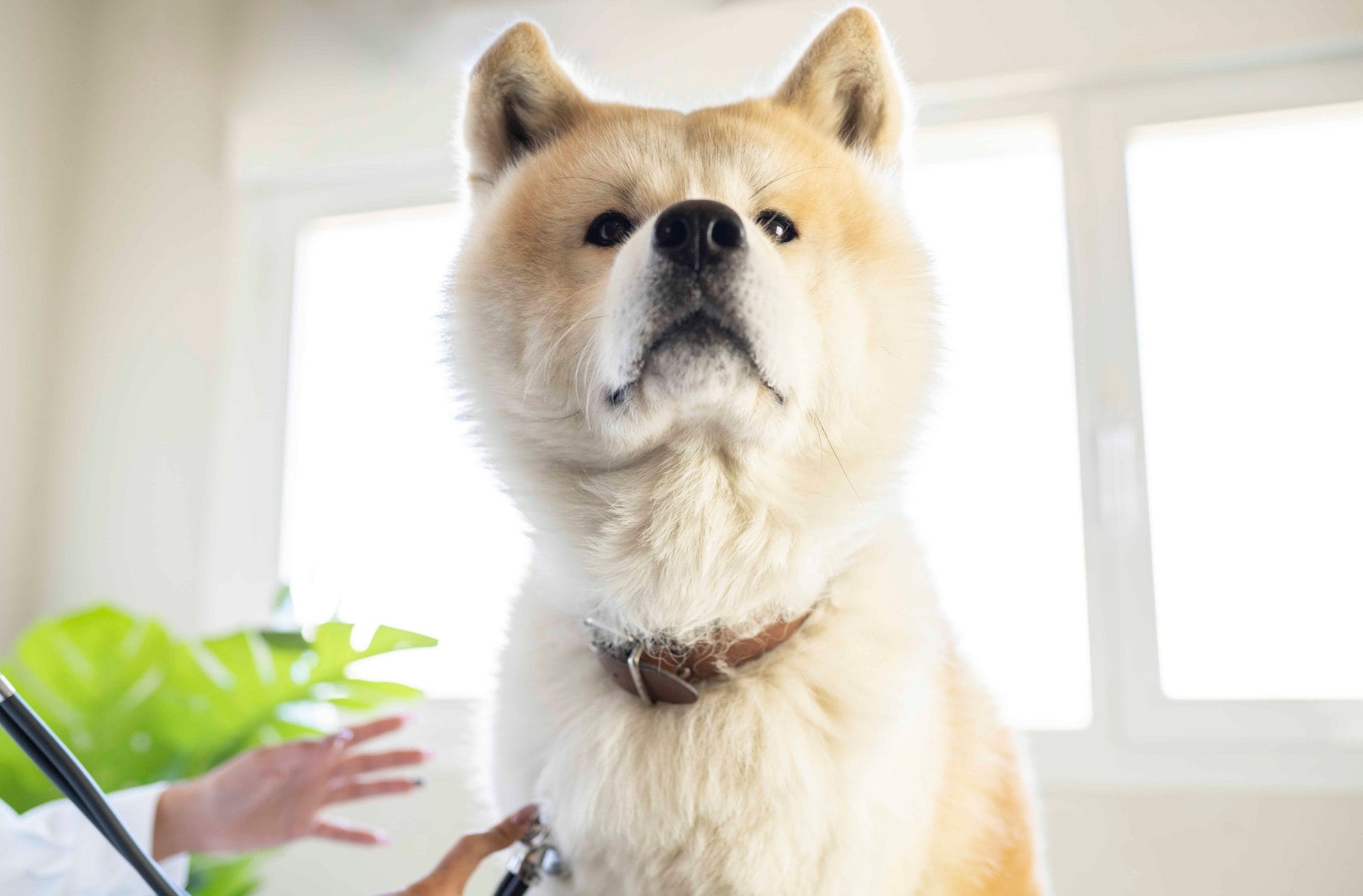
Appearance and personality
Akita is a large, powerful dog with a thick coat of fur that can be either white, brindle, or akita. They are loyal and protective dogs and make excellent guard dogs. Akitas are also independent and headstrong and can be very stubborn.
They require firm training and socialization from an early age. Akita is an intelligent breed of dog, and they are quick learners. However, they can also be very headstrong, and their independent nature means that they often require additional training and socialization.
Today, the akita’s personality is still prized for their loyalty and courage, and make excellent companions for active people. Akitas are usually very reserved around strangers but devoted to their families. They can be aloof and independent, but also playful and affectionate.
Akitas require firm training and socialization from an early age, but they can be calm and well-behaved dogs if done properly. Some akitas can be aggressive towards other dogs, but this varies from individual to individual. Overall, akitas make loyal, loving, and protective companions.
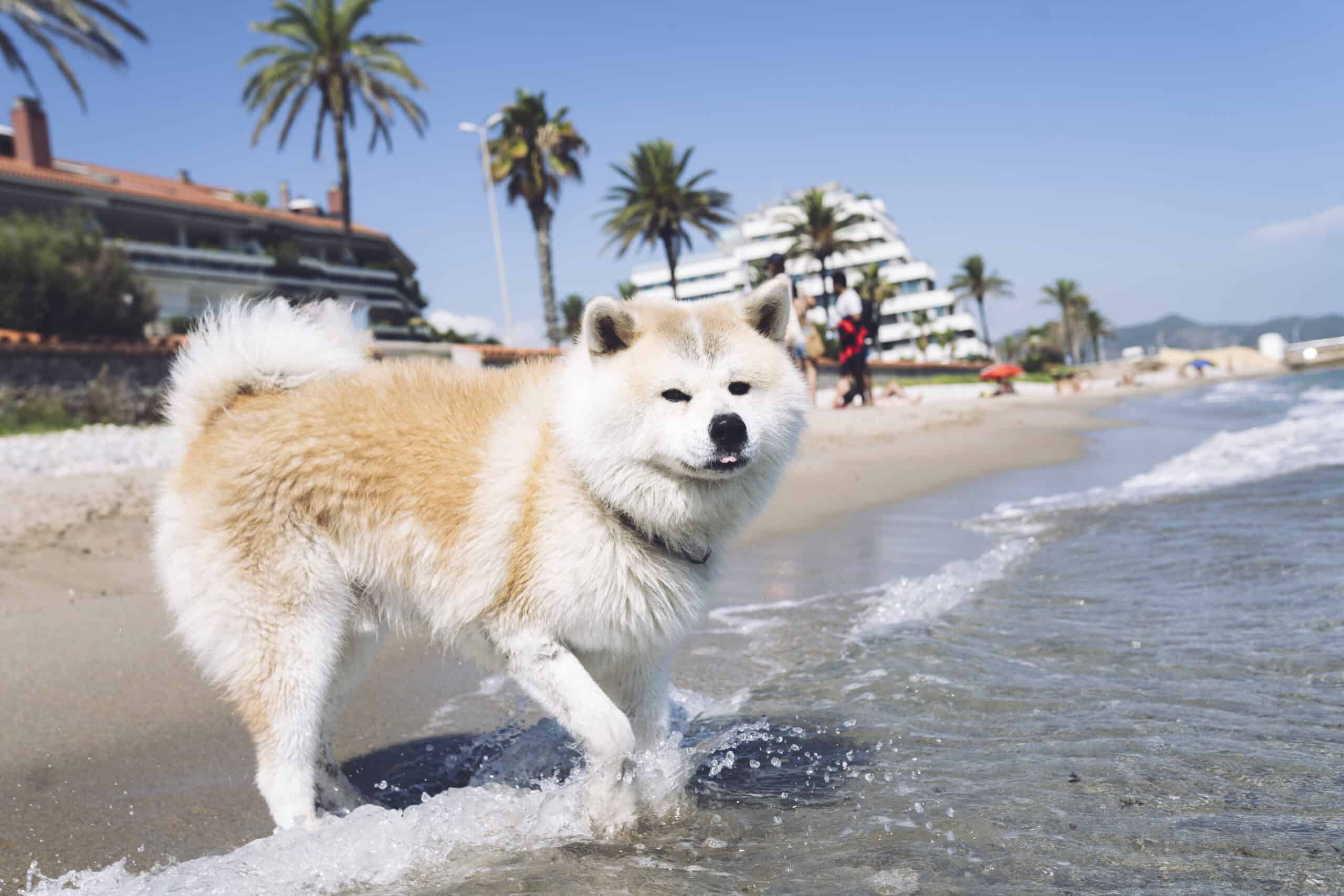
Size and weight of an Akita
The akita is a large breed of dog, with males typically weighing between 70 to 85 pounds (32- to 39kg). Females are typically smaller, weighing between 50 and 65 pounds (23- to 29kg). Akitas are also relatively tall dogs, with a body length of 36.5”-43.5” (93-110 cm) and a standing height of 31”-36.5” (79-93 cm). Akitas are broad-chested and muscular, with a thick coat of fur that helps to protect them from the cold.
The akita’s size and weight make it an excellent Guardian breed, as it is powerful enough to deter intruders but still agile enough to pursue them if necessary. Akitas are also known for their loyalty and devotion to their family, making them excellent companion dogs.
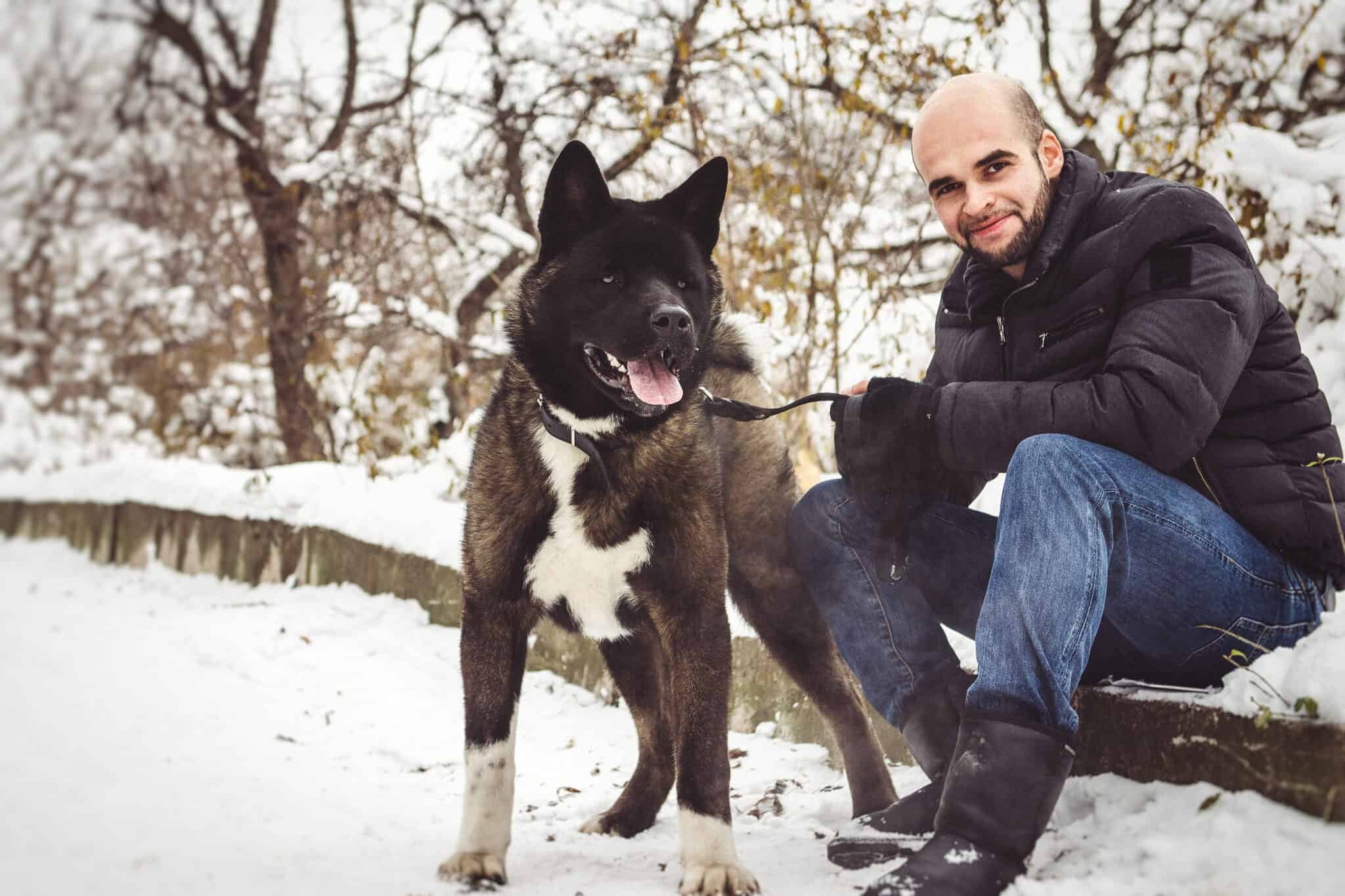
How much does an akita shed
An akita’s shed cycle is different than most other dogs. In the spring and fall, they typically increase in shedding frequency to help remove extra hair that might be coating their body for winter survival purposes – but this isn’t always true!
Factors such as diet can also play a big role on how much you’ll see your pup go through during any given year; some breeds have been known to produce more oils throughout these seasons while others may not change at all or very little.
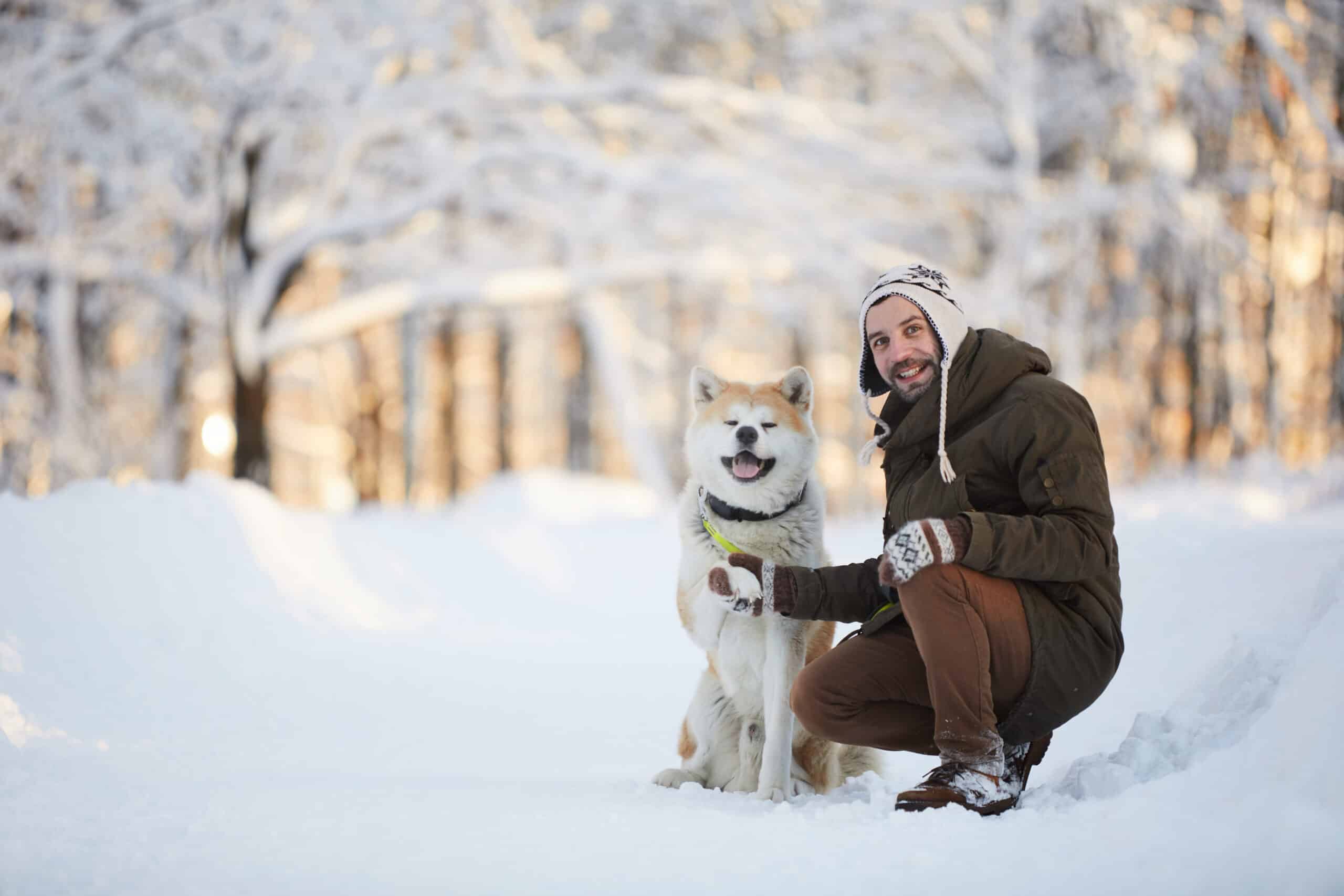
Training and exercise needs of an Akita
Training and exercise are essential for any dog, but they are especially important for Akitas. akitas are a high-energy breed that was originally bred to hunt, guard, and herd. As a result, they need plenty of opportunities to run and play. They also benefit from mental stimulation, so activities such as agility training can be particularly helpful.
Training should start at an early age, and it should be consistent throughout the dog’s life. With the right kind of training and exercise, an akita can be a loyal and loving companion.
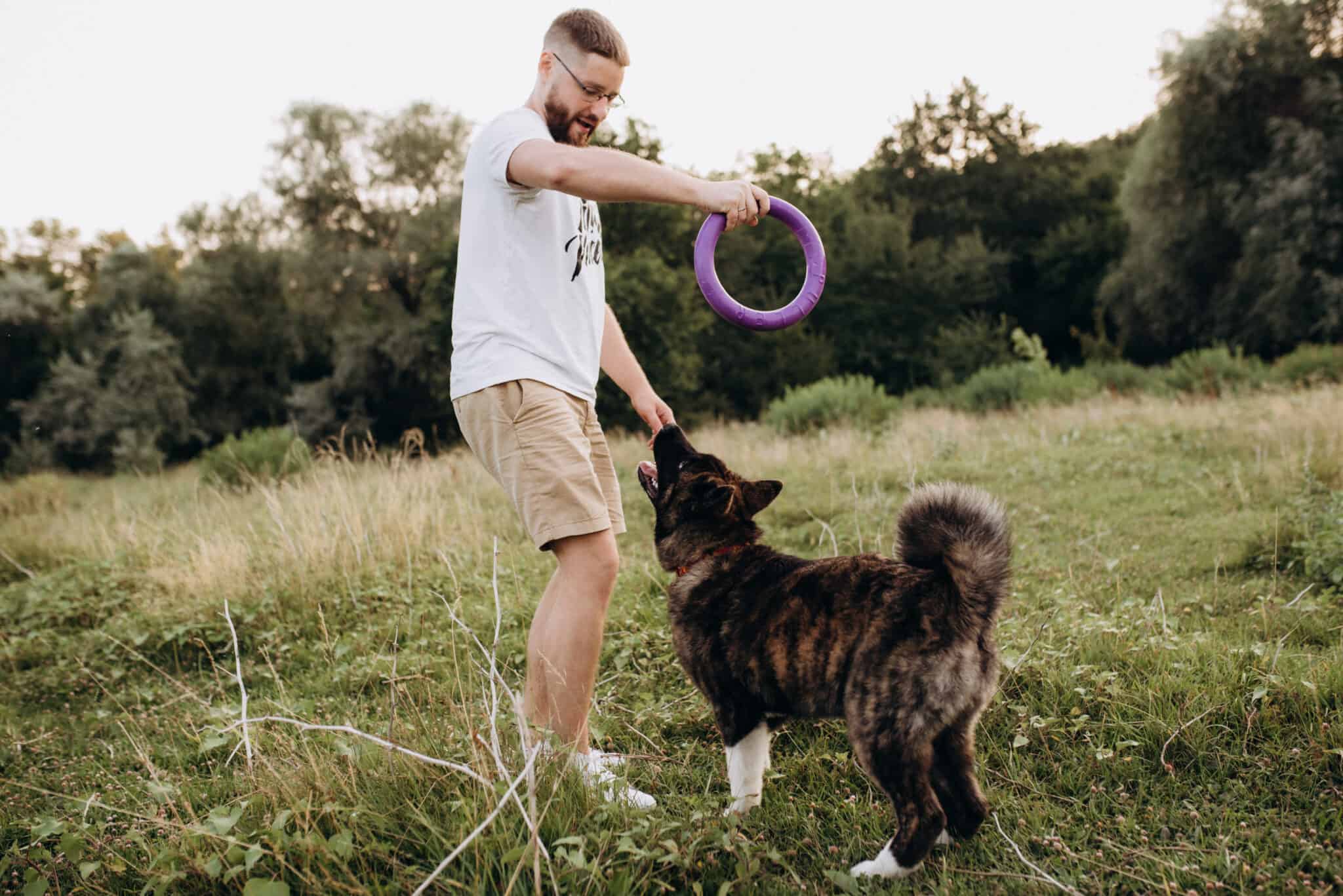
Health problems of an akita
Health problems are unfortunately not uncommon in the akita breed. Some of the most common health concerns include hip and elbow dysplasia, progressive retinal atrophy, and autoimmune hypothyroidism. It is important to be aware of these health problems before you purchase an akita puppy, as they can be expensive to treat.
Hip dysplasia is a relatively common condition that results in the displacement of the hip joint. Elbow dysplasia is similar but affects the elbow joint instead. Both conditions can cause pain and lameness, and often require surgery to correct.
Progressive retinal atrophy is a degenerative eye condition that can eventually lead to blindness. Autoimmune hypothyroidism is a condition where the body attacks its thyroid gland, resulting in hormonal imbalances.
While there is no cure for any of these conditions, they can be managed with medication and proper care. If you are considering adding an akita to your family, be sure to do your research and purchase your puppy from a reputable breeder.
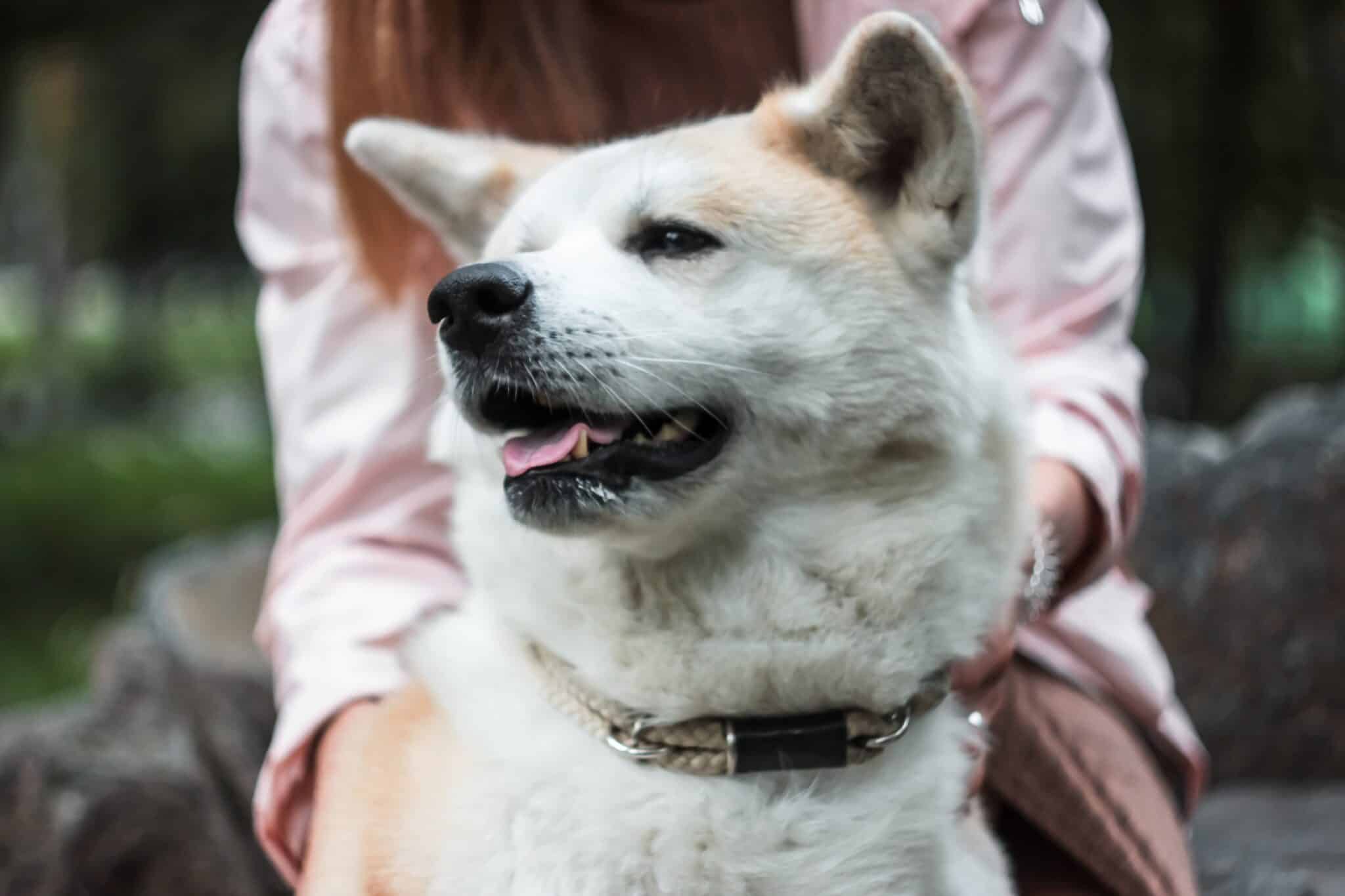
The husky
The husky is a popular breed of dog that is known for its thick fur coats and friendly disposition. Huskies are believed to have originated in Siberia, where they were used as a working dog by the indigenous people. The husky is an original sled dog which makes them such energetic dogs.
The husky was brought to Alaska in the late 1800s during the Gold Rush, and they quickly became a staple of Alaskan culture. Huskies were brought to Alaska because they are perfect for cold climates with their thick coats.
Today, huskies are still used as working dogs in many parts of the world, but they have also become popular pets. Thanks to their friendly nature and striking appearance, huskies have become one of the most popular and beautiful dogs in the world.
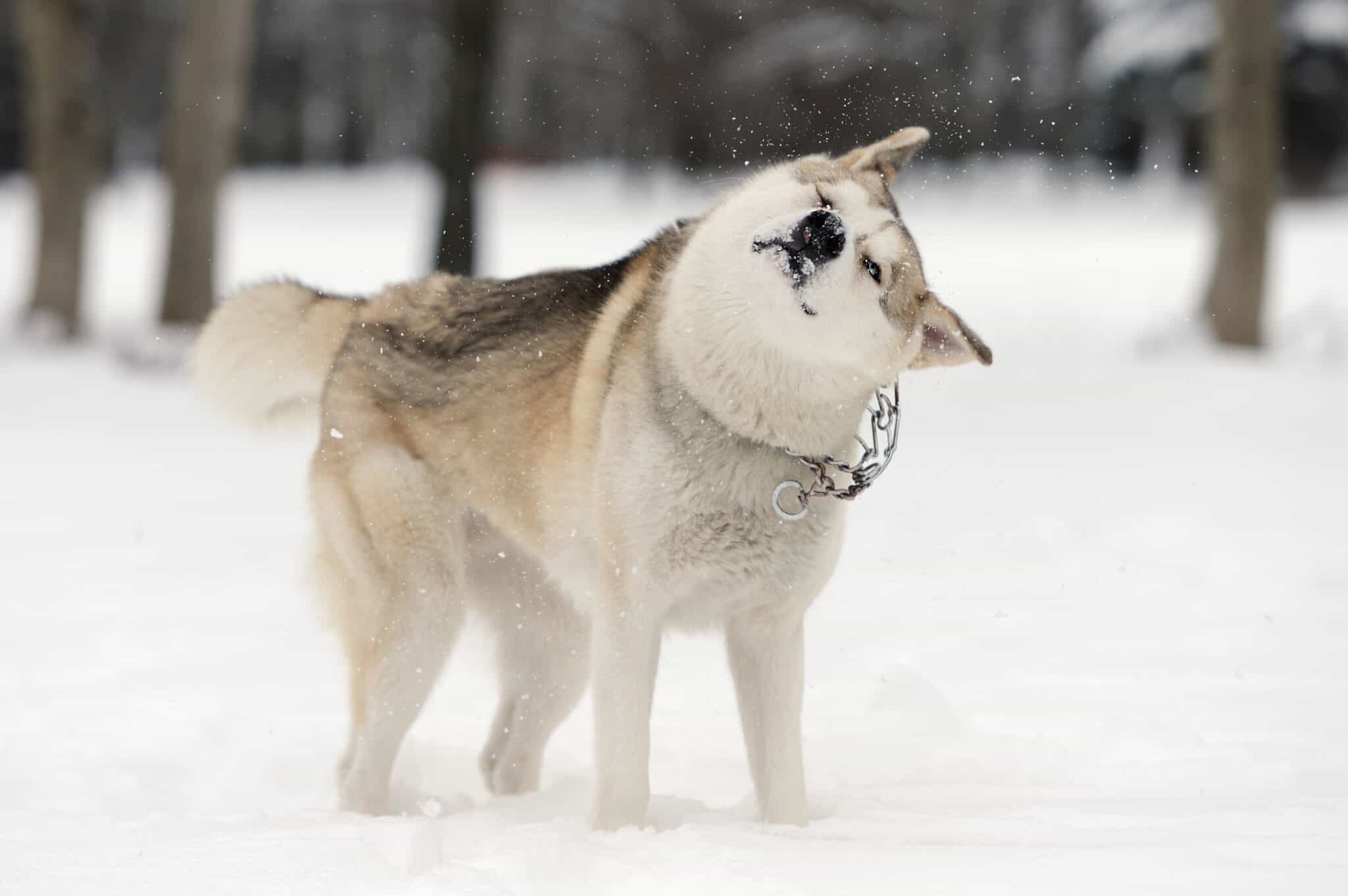
Appearance and personality of a husky
Huskies are a type of dog that is bred for their strength and endurance. They are typically medium to large, with thick fur coats that protect them from the cold weather.
Huskies are also known for their distinctive blue or green eyes. They are very friendly and social dogs, and they enjoy being around people. On top of that, they are also very active and require a lot of exercise.
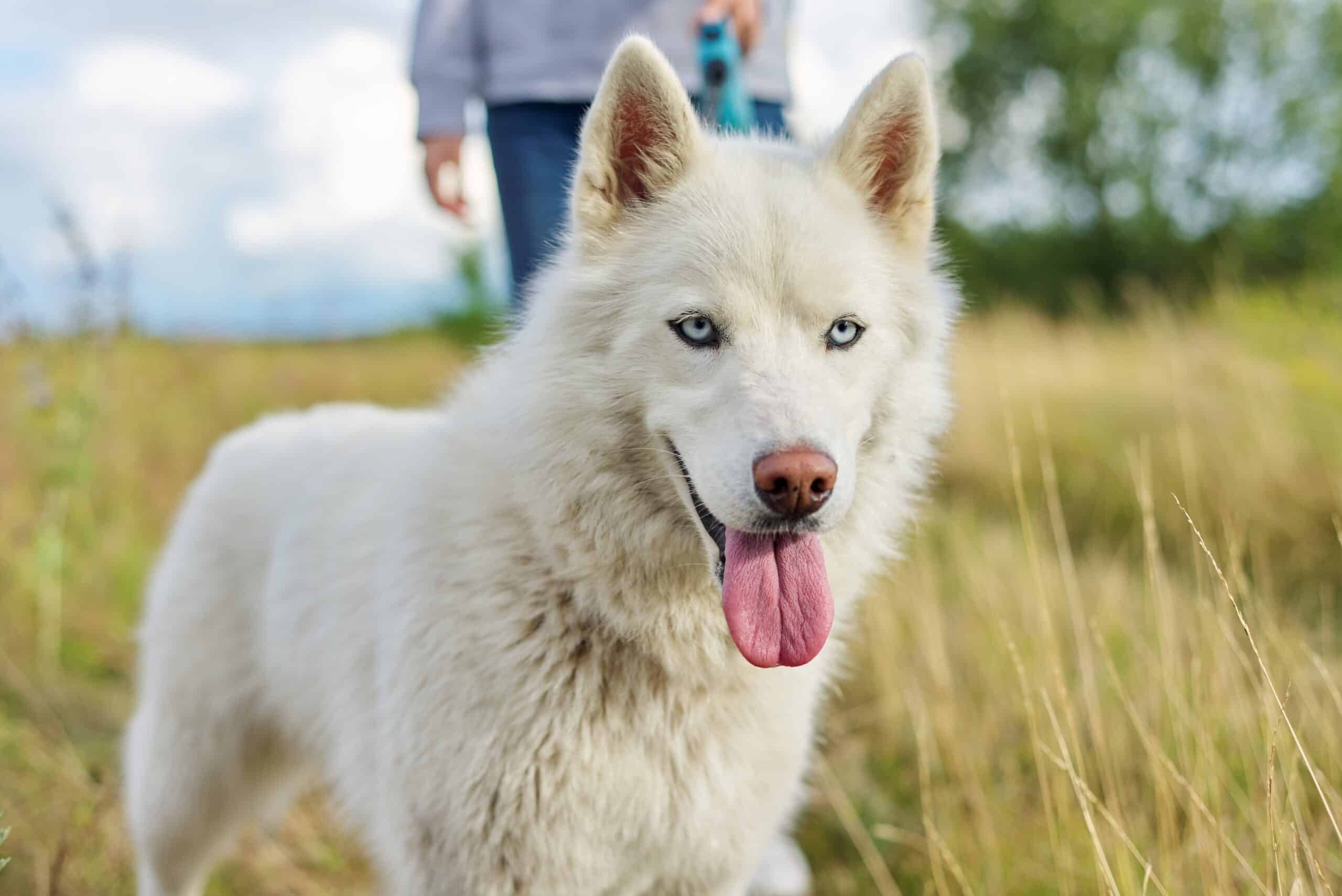
Size and weight of a husky
Huskies are a medium-sized breed of dog, and males typically weigh between 44 and 60 pounds (19- to 27kg). Females are smaller, typically weighing between 35 and 50 pounds(16- to 22.5kg). They are also relatively tall dogs, with a body length of 30” to 34.5” (76-87 cm) and a standing height of 26.5” to 31” (67-78 cm). Even though they are considered a medium-sized breed, they are still large enough that they need plenty of exercise.
Size-wise, they are larger than most other breeds of dogs, but they are not the biggest. However, what they lack in size, they make up for in personality. Huskies are known for being friendly, outgoing, and intelligent dogs that make great family pets.
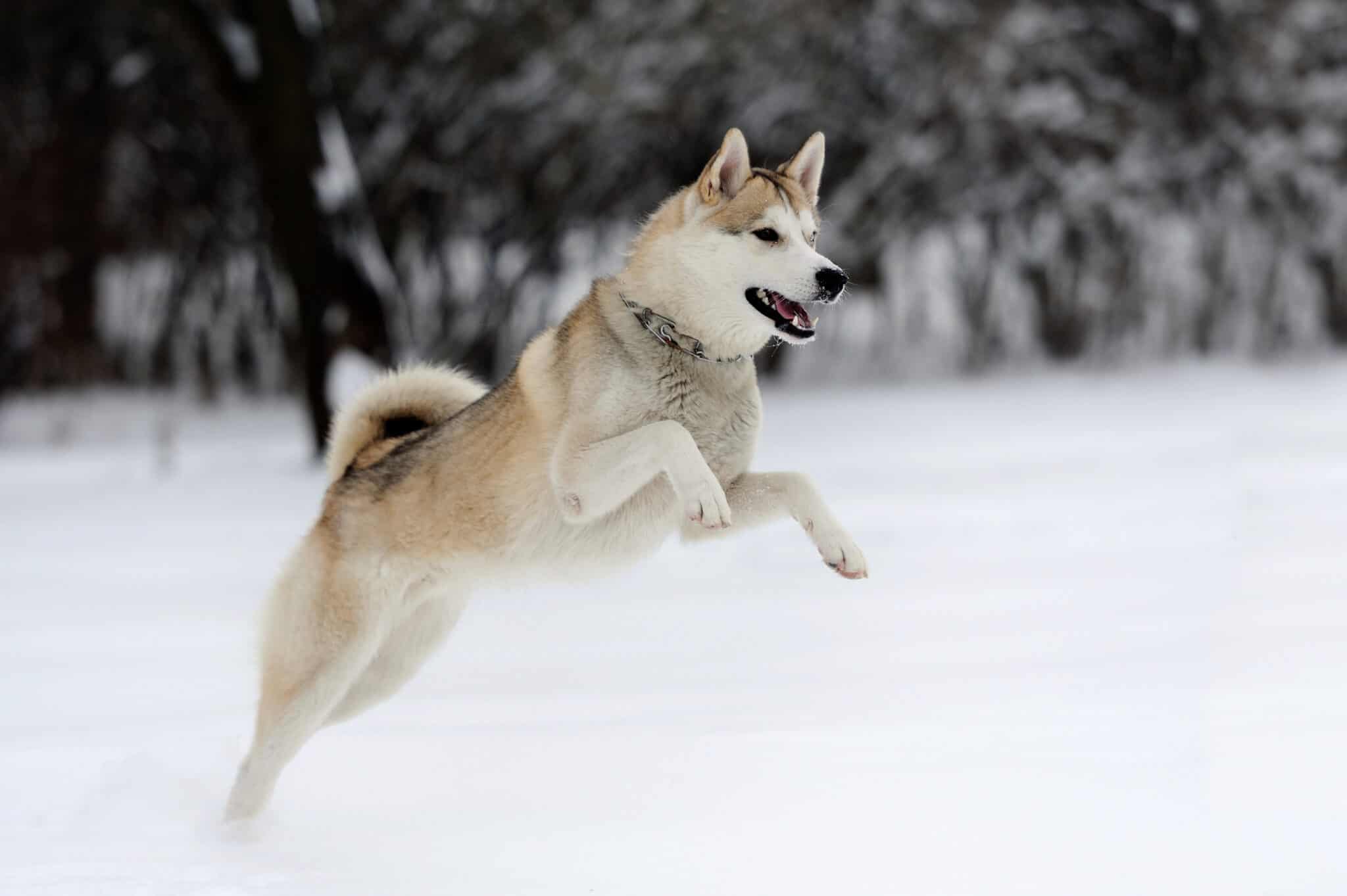
How much a husky sheds
First-time husky owners are often surprised by the amount of hair their husky sheds. Huskies can shed up to double their normal amount of hair during the spring blowing phase. This shedding phase typically lasts for several weeks.
During this time, huskies will lose an unbelievable amount of hair. It’s not uncommon for new husky owners to see the shedding as a sign that something is wrong with their dog. However, shedding is a natural process for huskies and is nothing to be concerned about.
The key to minimizing the shedding is to brush your husky regularly. Brushing will help to remove the loose hairs before they have a chance to spread around your house.
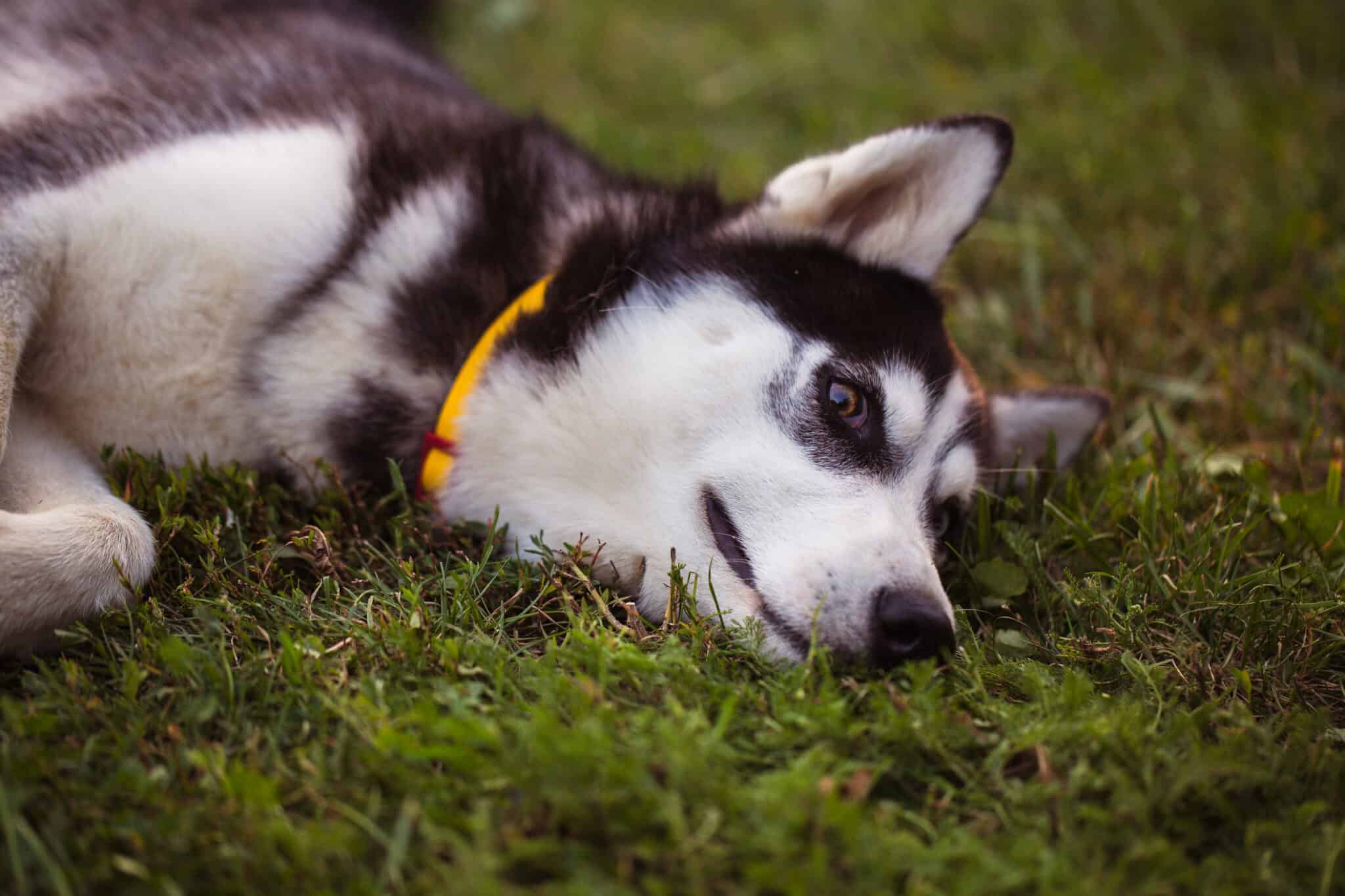
Training and exercise needs for a husky
Training and enough exercise are essential for a healthy and happy husky. Huskies are high-energy dogs and need at least 80 minutes of exercise per day. This can be a combination of running, playing fetch, and going for long walks.
Training is also important for huskies, as it helps to teach them obedience and good manners. Training classes can be a great way to socialize huskies and give them the chance to learn new things. A husky temperament can make training challenging at times, but it is still possible to train them with patience and consistency.
Huskies are intelligent dogs and can learn tricks, obedience commands, and other useful skills. Training and exercise are essential for a well-rounded husky, so make sure to include them in your daily routine.
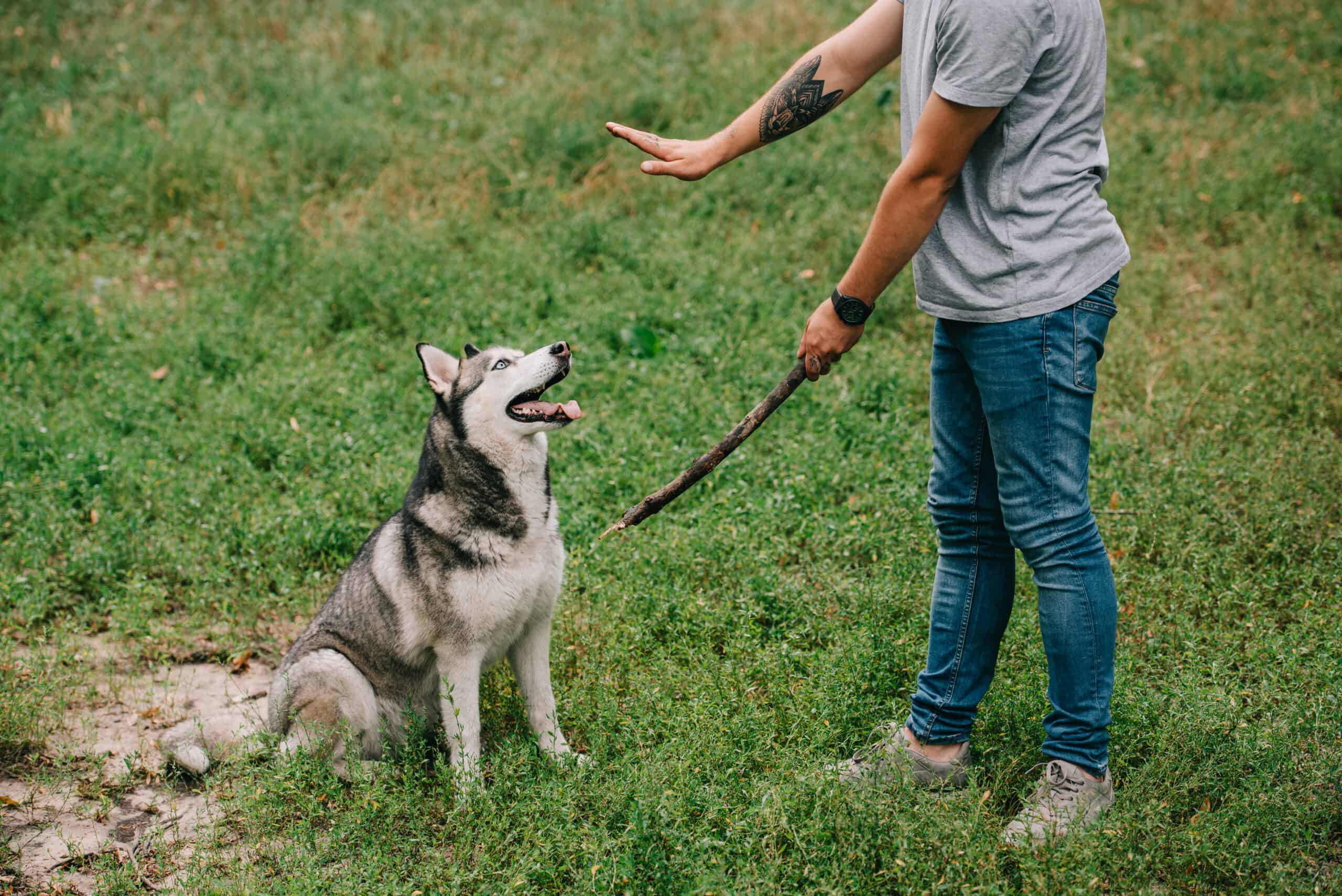
Health problems of a husky
The beautiful and loyal Siberian Husky is an excellent pet choice for any family. They’re known to be among the longest living breeds, with some having lived as long as 14 years!
However this longevity comes at a cost – purebred huskies may suffer from canine health issues such as eye problems like corneal dystrophy or cataracts alongside copper storage disease which causes them to lose pigment in their skin over time.
While these health problems can be serious, many of them can be effectively managed with proper veterinary care. For example, hip dysplasia can be treated with weight management and exercise, while eye problems can be monitored and treated with medication or surgery if necessary. With proper care, Huskies can enjoy long and healthy lives.
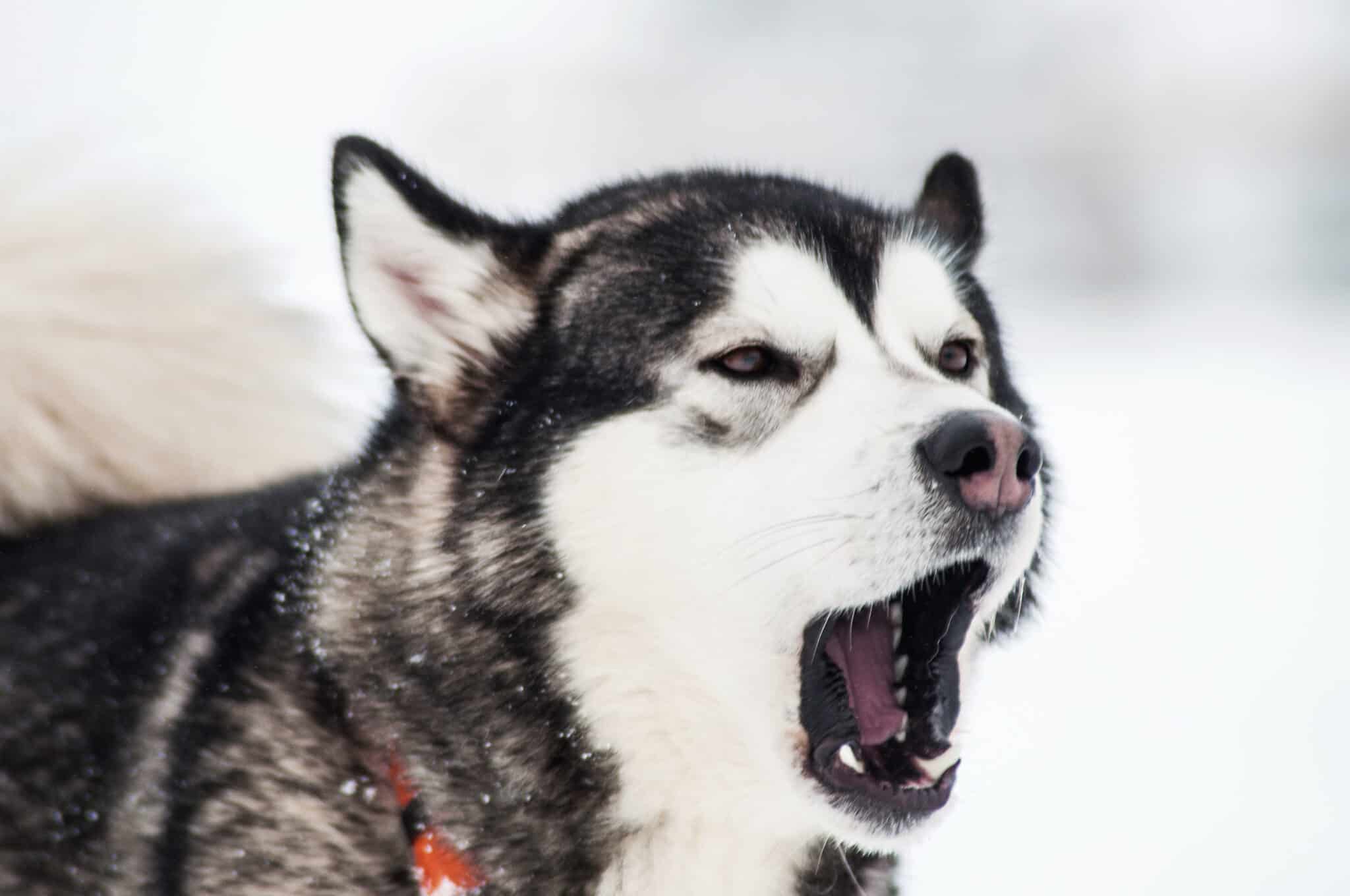
The differences between an akita vs husky
Now, that we have taken a look at akitas and huskies individually we can compare them respectfully. We will discuss the finer details between an akita and husky. This will help you make an informed decision about which breed is best for you.
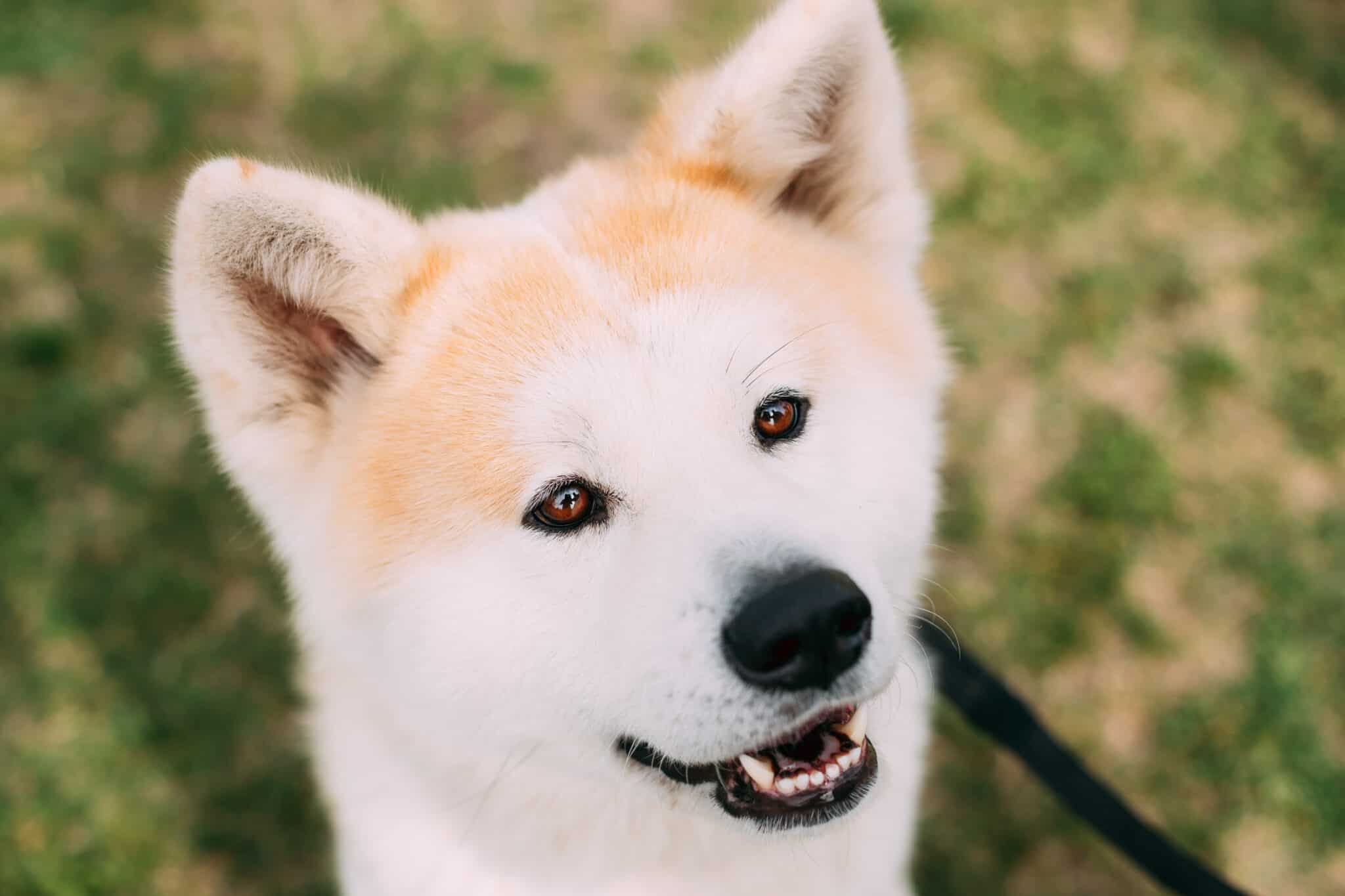
Appearance and personality
Akita’s have a thick double coat that is designed to protect them from the cold weather in their native Japan. The akita’s coat is typically white, with markings that can be any color including black, brindle, red, or fawn. Huskies also have a thick double coat, but their coats are much lighter.
The husky’s coat is designed to protect them from the cold weather in their native Siberia. The husky’s coat can be any color, but the most common colors are black and white, gray and white, copper-red and white, or pure white.
When it comes to personality, akita’s are known for being independent and aloof, while huskies are also known for being strong-willed, they are more friendly and social. Akita’s are also considered to be loyal and protective, while huskies are known for being intelligent and playful. Akita’s typically have a strong prey drive, while huskies typically do not.
Akita’s are not known for being big barkers, while huskies are. Huskies will often vocalize by howling or barking, which can be a problem for some people. If you live in an apartment or close quarters, a husky’s barking can be disruptive.
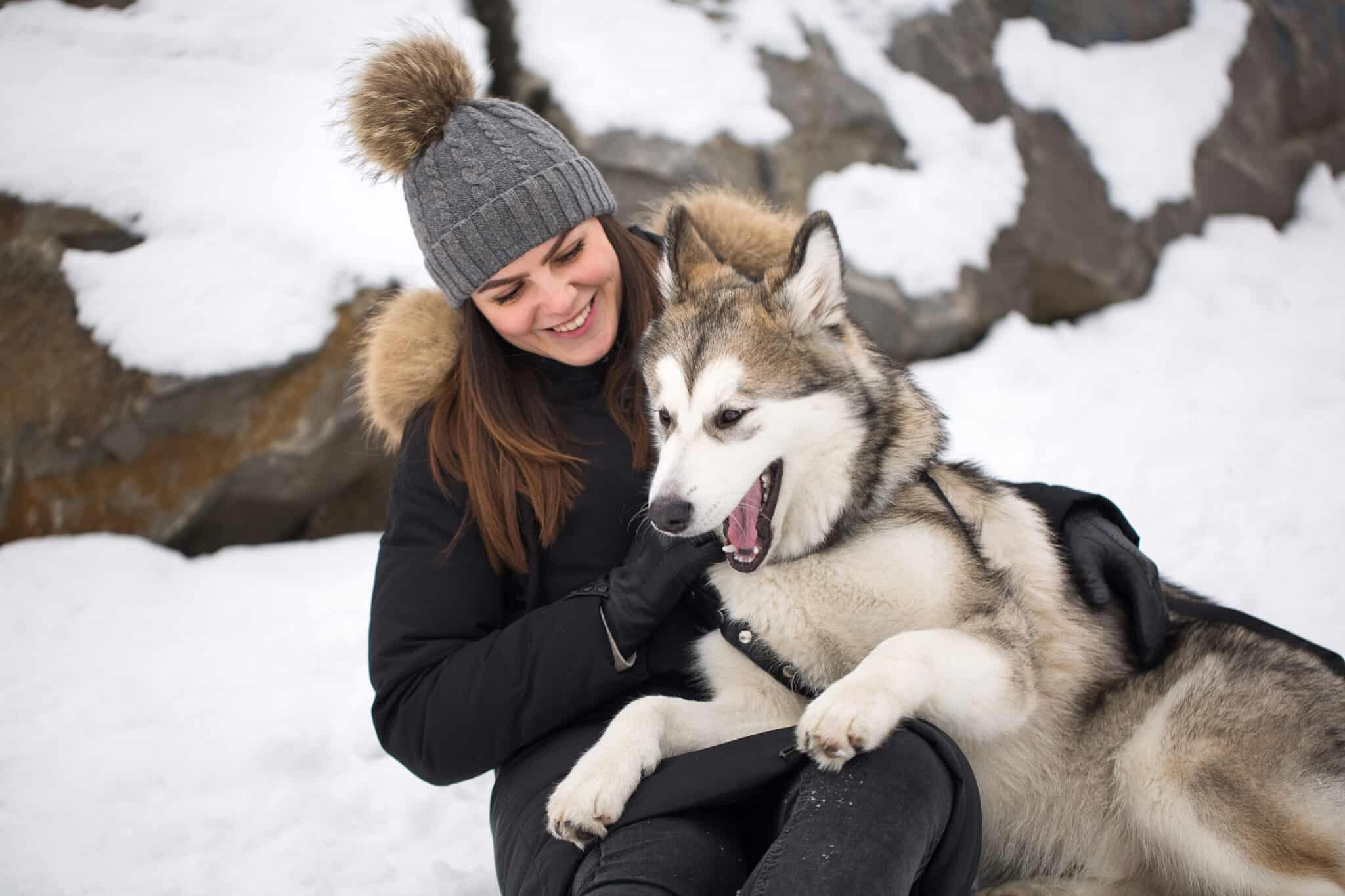
Size and weight
When it comes to appearance, akita’s are much larger than huskies. They typically weigh between 50 and 85 pounds, while huskies only weigh between 35 and 60 pounds. Akitas are also taller than huskies, with a height of 31”-36.5” (79-93 cm), while huskies only stand at 26.5”-31” (67-78 cm) tall. The body length of an akita is also bigger, with a length of 36.5”-43.5” (93-110 cm) vs a Huskies length of 30” to 34.5” (76-87 cm).
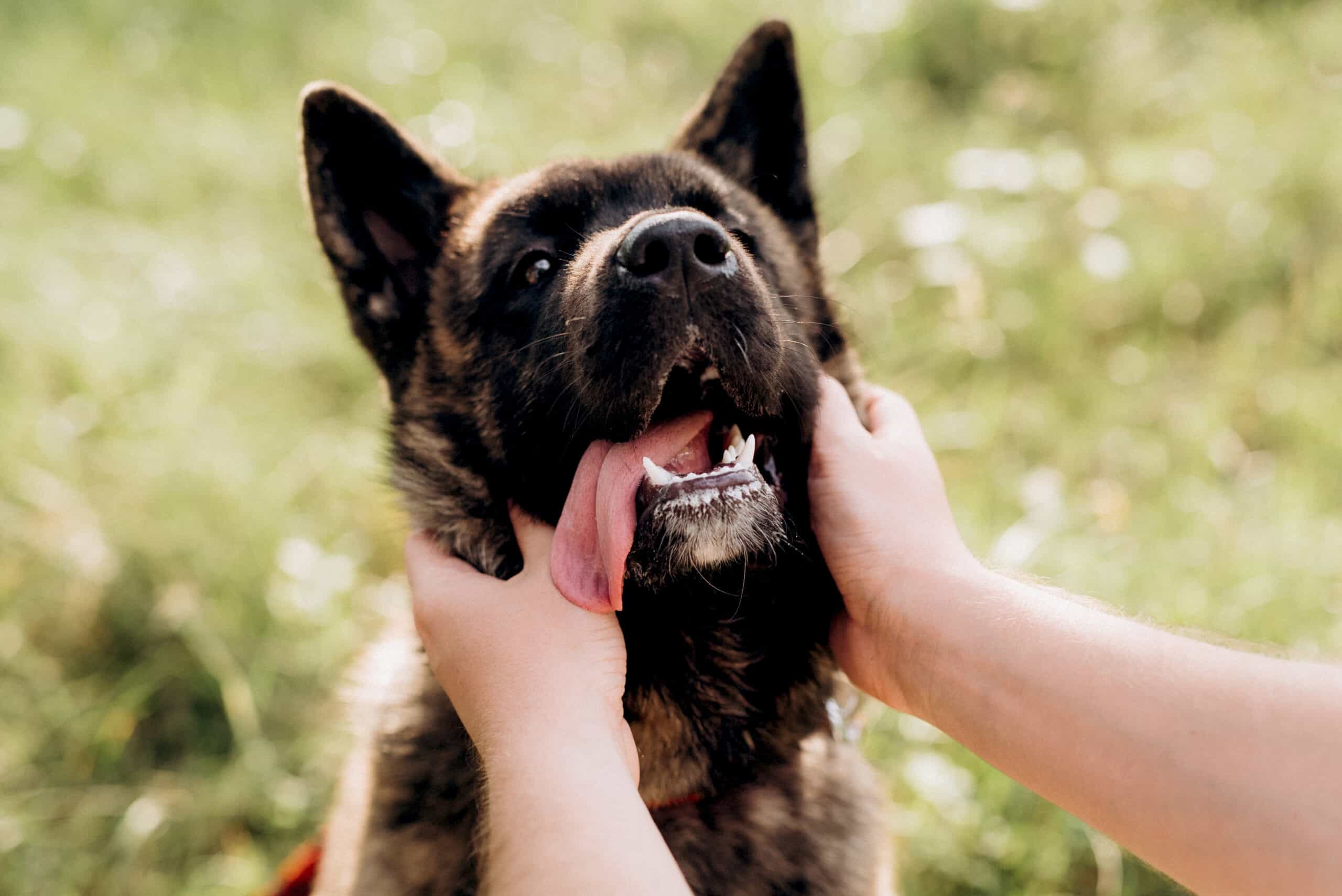
How much they shed
Huskies and akita’s both have a thick double coat that helps protect them from the cold weather. The akita’s coat is typically longer than the husky’s coat, which means they shed more. Akitas also shed more during certain times of the year, such as when they are shedding their winter coat. Huskies typically only shed their coat once a year, during the spring.
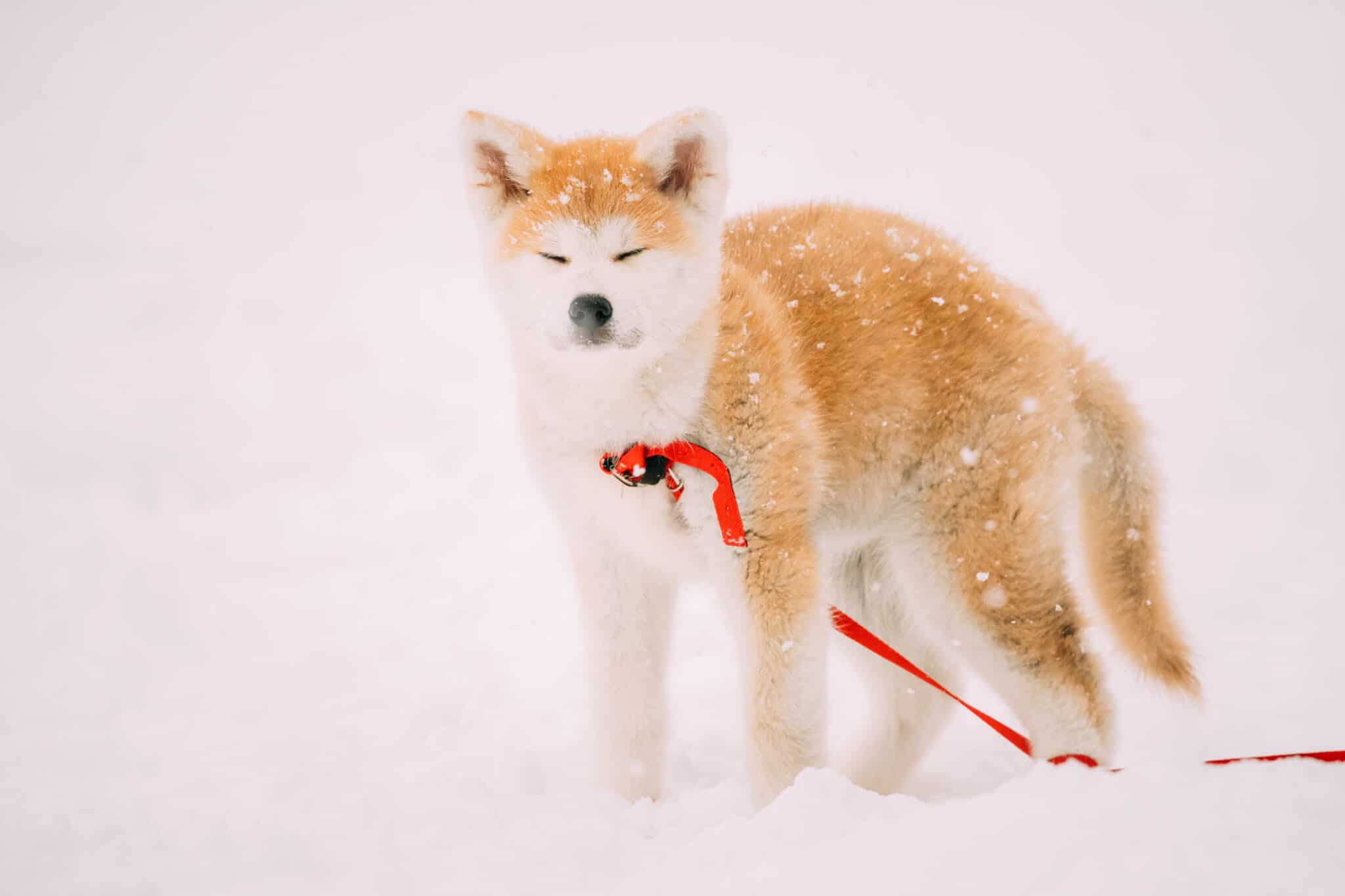
Training and exercise needs
Akita’s are considered to be more independent than huskies, which means they may not be as responsive to training. akitas also have a higher prey drive, which can make them difficult to train.
Huskies are considered to be intelligent and playful, which makes them easier to train. Huskies also have a lot of energy, which means they need a lot of exercise. akitas need less exercise than huskies, but they still need a moderate amount of exercise.
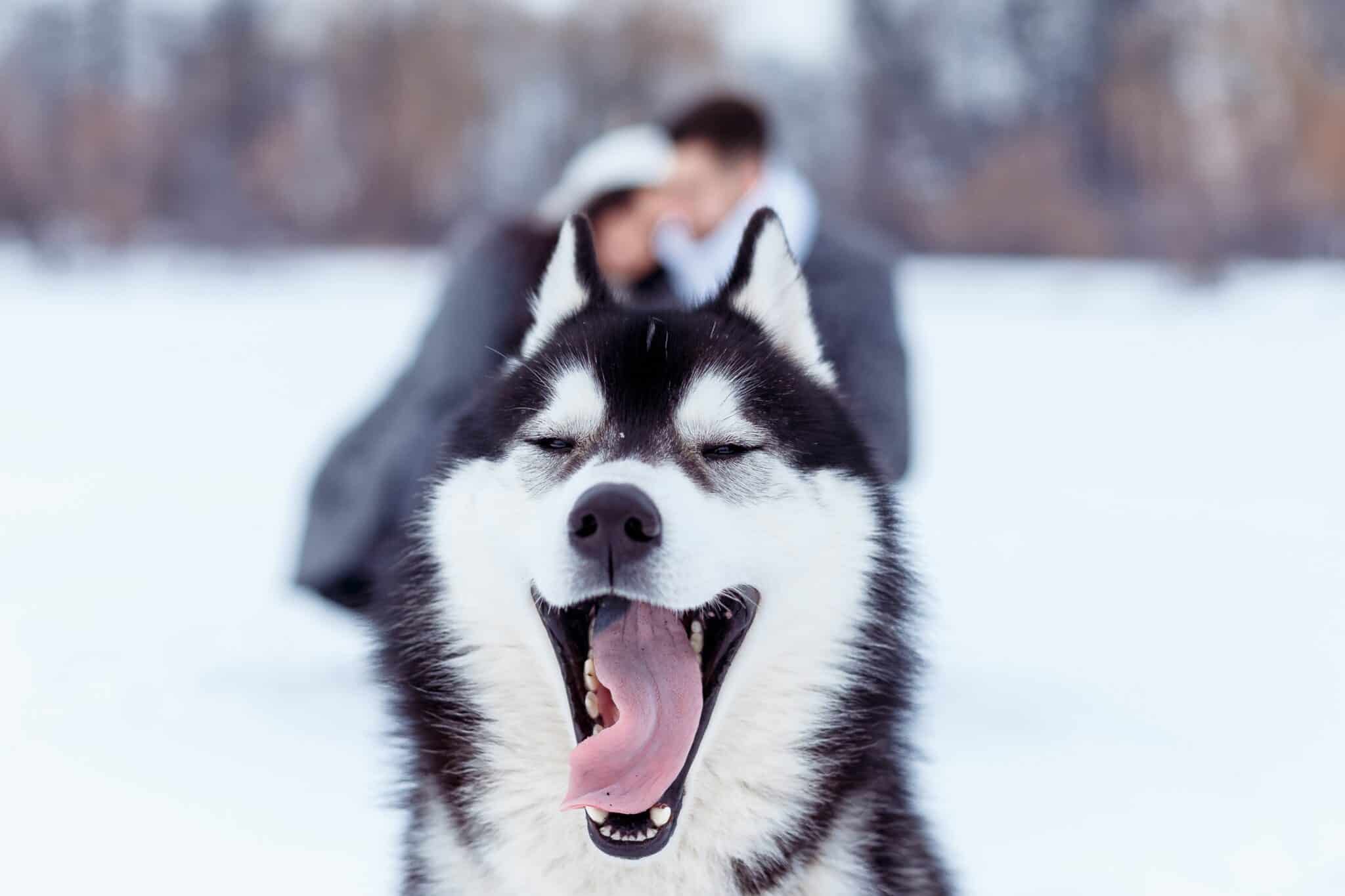
Health problems
As any pet owner knows, all breeds of dogs come with their own set of health risks. However, some breeds are more prone to certain health problems than others. For example, Huskies and akitas are both susceptible to joint problems such as hip dysplasia. Huskies are also prone to eye disorders such as corneal dystrophy, while akitas are at a higher risk for developing epilepsy.
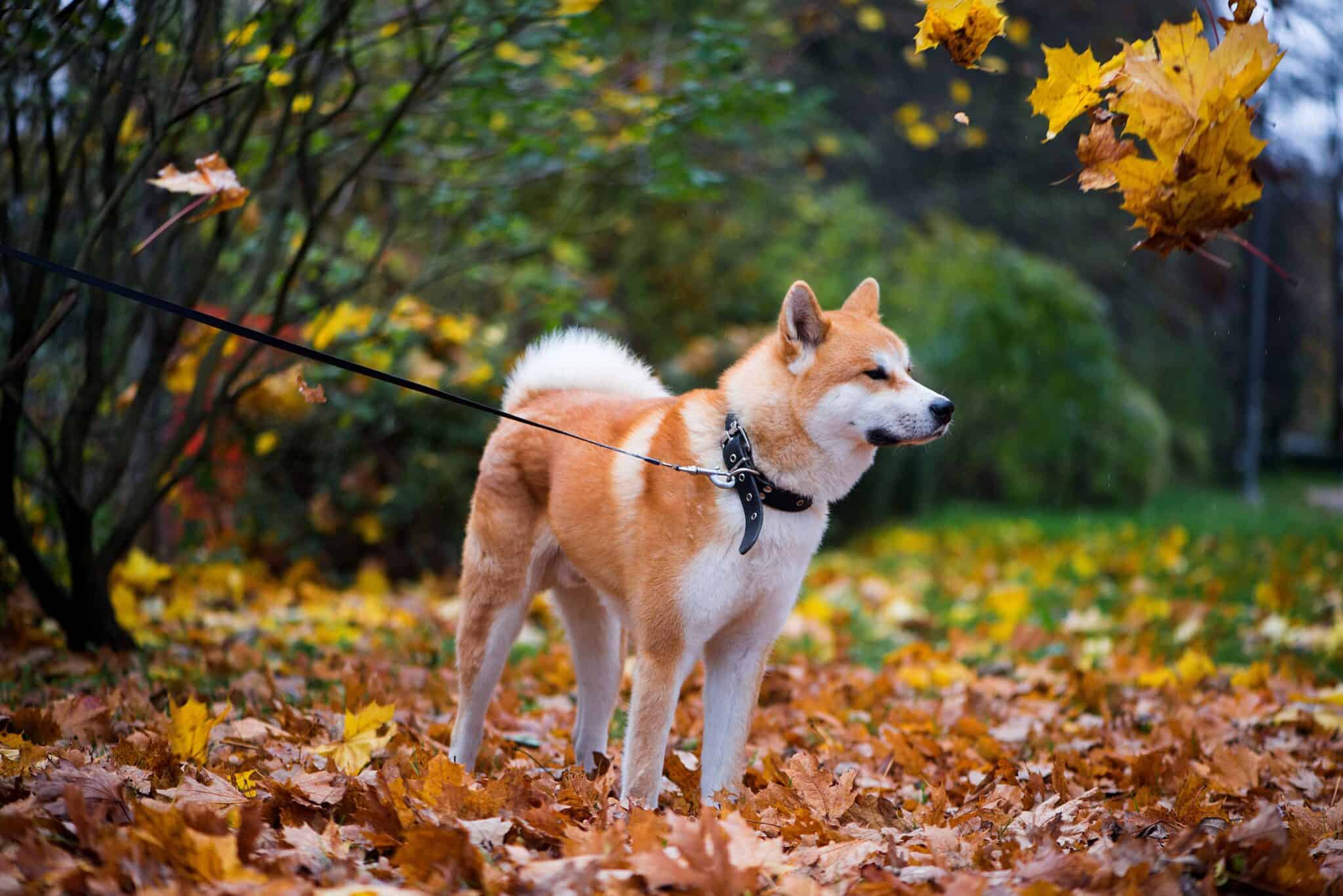
Which breed is right for you?
When it comes to akita vs husky, there are a few key differences to take into consideration.
Akitas are slightly larger dogs, while huskies tend to be more energetic.
Akitas also have a reputation for being more independent and aloof, while huskies are known for being friendly and social.
Huskies typically only shed their coat once a year, during the spring, while akita’s can shed more throughout the year.
Huskies also have a lot of energy, which means they need a lot of exercise. akitas need less exercise than huskies, but they still need a moderate amount of exercise.
Huskies are also prone to eye disorders such as corneal dystrophy, while akitas are at a higher risk for developing epilepsy.
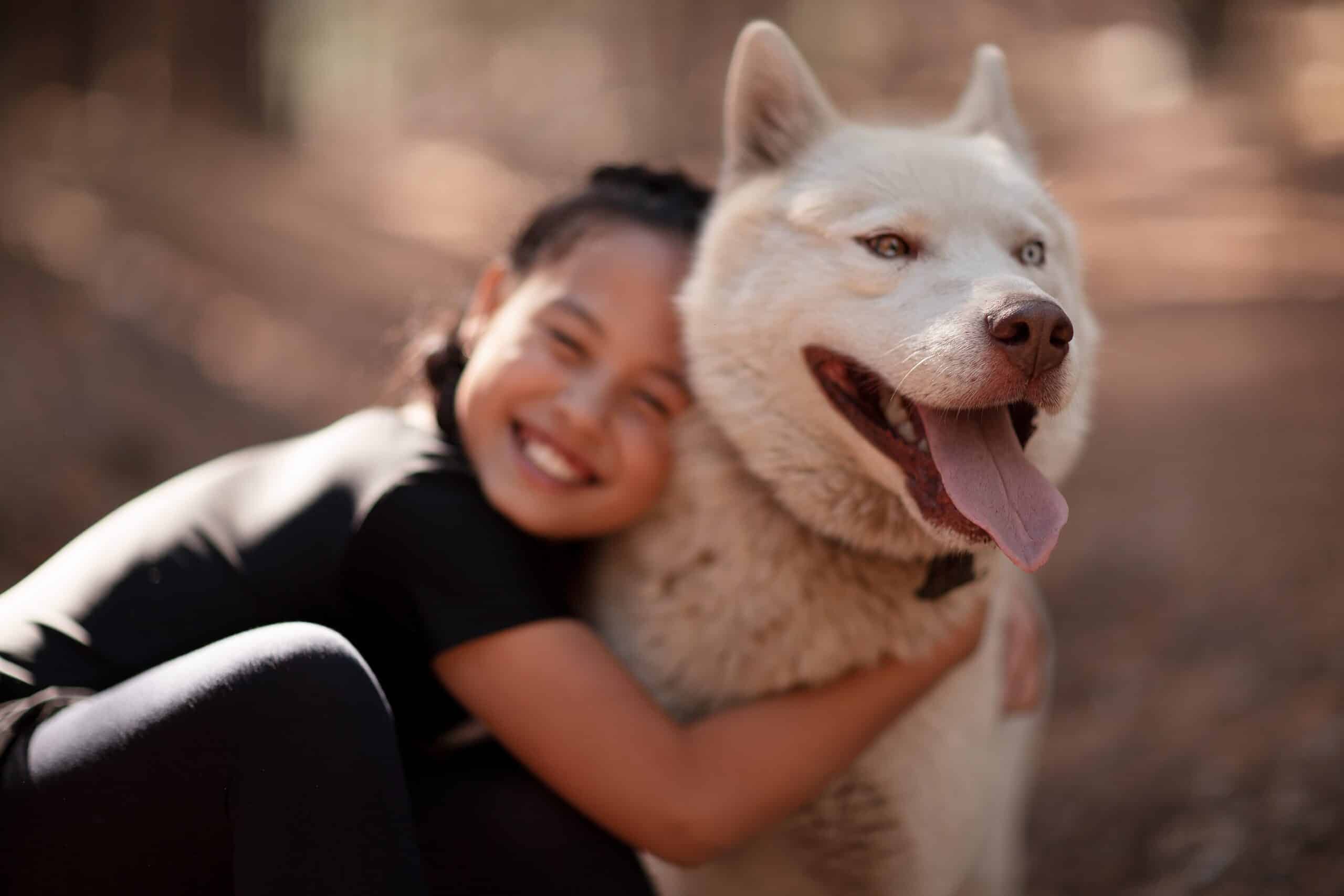
Consider your lifestyle and needs when choosing between akita vs husky.
If you are looking for a slightly larger dog with a reputation for being independent, then the akita might be the right breed for you. If you are looking for a friendly and social dog that is easy to train, then the husky might be the better option. Ultimately, the best way to choose is to find the breed that best matches up with your lifestyle and needs.

